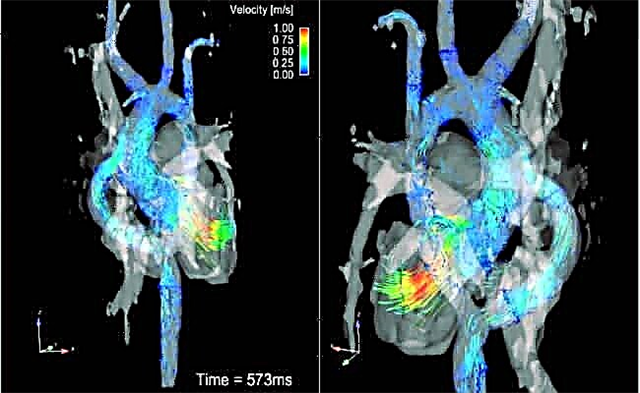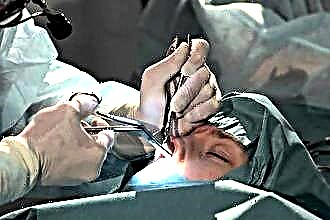 In the absence of therapy, herpes infection affects not only soft tissues, but also the central nervous system, which entails the development of encephalitis or meningitis. Herpes viruses are among the DNA-containing pathogens that can integrate into the genetic apparatus of healthy cells.
In the absence of therapy, herpes infection affects not only soft tissues, but also the central nervous system, which entails the development of encephalitis or meningitis. Herpes viruses are among the DNA-containing pathogens that can integrate into the genetic apparatus of healthy cells.
That is why, even after undergoing antiviral therapy, the pathogenic flora remains in the body and is activated with a decrease in local or general immunity. Chronic diseases, immunodeficiencies, hypovitaminosis, etc. can provoke the multiplication of pathogens.
Pathogenesis
Herpes infection is transmitted mainly by airborne droplets, household contact and sexually. Pathogenic agents enter the body through the mucous membranes of the airways, eyes and genitals. Having overcome tissue barriers, herpes viruses migrate into the lymph and blood, as a result of which they are spread throughout the body.
The danger of herpes infection lies in the fact that it affects nerve cells and is embedded in their gene apparatus. If the nervous system is damaged, it is almost impossible to completely eliminate the virus. The adaptive immunity reacts to the penetration of foreign virions into the body by synthesizing specific antibodies that inhibit the reproductive activity of herpes viruses.
Important! The activation of the herpes virus in the body increases the risk of developing Alzheimer's disease several times.
Introduced into the tissues of the host, virions destroy the cellular structures of the mucous epithelium, as a result of which inflammation occurs. In places of localization of a viral infection, vesicles filled with serous exudate are formed. The rash causes discomfort and pain when swallowing.
Causes
Why does herpes throat occur in adults? A viral disease is triggered by the HSV1 or HSV2 virus. Most often, infection occurs through contact with a sick person or through household items - dishes, towels, office supplies, etc. The key reason for the spread of opportunistic virions is immunodeficiency. A decrease in the reactivity of the body is most often due to:
- hypothermia;
- smoking;
- HIV infection;
- vitamin deficiency;
- chronic diseases;
- mechanical injuries;
- burns in the throat;
- abuse of immunosuppressants.
The throat can also be affected by the development of herpetic stomatitis or glossitis. Untimely treatment of a viral infection leads to the spread of pathogenic flora and damage not only to the throat, but also to the tonsils. It should be noted that the spread of herpesvirus negatively affects the body's immune defenses. If inflammation is not eliminated in time, this can lead to the development of severe systemic complications.
Symptoms
How do you know if your throat is infected with the herpes virus? Clinical manifestations of pathology can easily be confused with the symptoms of a common sore throat, laryngitis, pharyngitis and other ENT diseases. Only a specialist can make a diagnosis after a visual examination of the patient and an assessment of the results of a microbiological analysis from the pharynx.
The disease begins suddenly and is characterized by a sharp rise in temperature to febrile levels. Even before the appearance of a vesicular rash on the walls of the throat, patients complain of perspiration, burning and dryness. 2 days after infection of the ENT organs, the following clinical manifestations occur:
- hyperemia of the oropharynx;
- tingling sensation in the throat;
- the formation of vesicles on the mucous membranes;
- spontaneous opening of bubbles;
 ulceration and swelling of the pharynx.
ulceration and swelling of the pharynx.
The progression of the disease leads to the destruction of soft tissues and the appearance of a hemorrhagic rash in the oropharynx.
In the case of herpes infection, general symptoms of intoxication are noted - nausea, general weakness, lack of appetite, drowsiness, joint pain, etc. Untimely treatment of the disease entails the addition of bacterial flora, the development of which is evidenced by purulent exudate in vesicular formations and an increase in regional lymph nodes.
Herpetic sore throat
In most cases, herpes on the tonsils indicates the development of herpetic sore throat or herpangina. ENT disease is characterized by inflammation of lymphadenoid clusters (glands), in which small vesicles form on the surface of paired organs. It should be noted that the provocateur of pathological reactions in the respiratory organs is the Coxsackie viruses or echovirus, which are distinguished by a high degree of contagiousness.
How to understand that the gland is affected by a viral infection? If herpangina is suspected, the specialist conducts a serological and virological analysis, during which he determines the causative agent of the infection. Serous inflammation of the components of the pharyngeal ring leads to the appearance of the following pathological symptoms:
- decreased appetite;
- fever;
- abdominal pain;
- burning sensation in the throat;
- difficulty swallowing;
- acute rhinitis;
- hypersalivation;
- periodic cough.
The development of pathology begins with the manifestation of a flu-like syndrome, however, the treatment of herpangina and influenza has a number of significant differences.
The atypical course of the disease occurs in people with reduced body reactivity. Only catarrhal inflammation of the throat without the formation of vesicular rashes can signal the development of pathology. In some cases, the appearance of papular formations on the distal extremities is noted. Treatment of herpangina involves the use of hyposensitizing, antiviral, antipyretic and immunostimulating agents. To eliminate serous inflammation in the mucous epithelium, antiseptic solutions with an antiphlogistic effect allow.
Herpes zoster
Herpes zoster is a severe viral pathology that is triggered by the varicella-zoster virus. Not so long ago it was found that with the development of the disease, not only the skin can be affected, but also the mucous membranes of the respiratory system. The pathology is characterized by serous inflammation of the soft tissues and nerve roots, therefore, delayed treatment often leads to severe complications.
Infectious lesion of the ENT organs occurs against the background of the activation of the latent form of herpesvirus, in which the pathogenic agents penetrate the submucous layer of the respiratory organs through the nerve fibers. As a result, inflammation of the ciliated epithelium occurs with subsequent pathomorphological changes in soft tissues. Herpes zoster on the throat occurs with local hypothermia and damage to the respiratory system with adenoviruses. The activation of the virus can be triggered by colds, drug intoxication, malaria, etc.
It is extremely difficult to visually distinguish a viral-vesicular infection from herpangina. As a rule, patients with herpes zoster complain of excruciating pain in the palatine arches, pharynx, larynx and anterior part of the fornix of the hard palate. Often, pain radiates to the pharynx, retromaxilar region and ear. Serous inflammation lasts no more than 15 days, after which whitish scars and erosive points remain on the mucous membranes of the oropharynx.
Possible complications
Is it possible to cure throat herpes on your own? The symptoms of the disease are often confused with the manifestations of viral tonsillitis, pharyngitis, stomatitis and other diseases.Inadequate treatment of the disease leads to the progression of herpes infection and the development of complications, which include:
 neuralgia of the trigeminal nerve - damage to the nerve endings by virions entails disruptions in the conduction of nerve impulses, as a result of which there is a spasm of the facial muscles and inflammation of the trigeminal nerve;
neuralgia of the trigeminal nerve - damage to the nerve endings by virions entails disruptions in the conduction of nerve impulses, as a result of which there is a spasm of the facial muscles and inflammation of the trigeminal nerve;- candidiasis - the spread of herpes viruses leads to a critical decrease in reactivity, which can provoke the reproduction of opportunistic fungi in the throat; active development of yeast-like fungi leads to candidiasis or thrush of the oropharynx;
- generalization of inflammation - the unhindered spread of herpes infection can lead to damage to vital organs and the development of serous inflammation in all mucous membranes of the body.
The passage of complex therapy allows you to prevent the development of systemic complications. With a timely visit to a specialist, the clinical manifestations of ENT pathology disappear within 10-14 days.
Treatment principles
How to cure the larynx and eliminate inflammation in the respiratory organs? Self-medication can only aggravate the patient's well-being and lead to the chronicization of pathological processes due to the adaptation of herpes infection to the medications used. After an accurate diagnosis and appointment by a specialist of drug therapy, the patient needs to be provided with a pastel mode and to limit contact with people around him as much as possible. The classical treatment regimen for absolutely all forms of viral-vesicular infections of the oropharynx includes the following types of medications:
| Type of drug | Drug name | Operating principle |
|---|---|---|
| antivirus |
| destroy virions or interfere with the replication of viral DNA, as a result of which the number of herpes viruses in the body decreases |
| anti-inflammatory |
| interfere with the biosynthesis of inflammatory mediators, which accelerates the regression of catarrhal reactions in soft tissues |
| immunostimulating |
| increase the activity of immune cells, which speeds up the process of destroying virions in the mucous membranes of the throat |
| antihistamines |
| inhibit the activity of histamine receptors, which prevents the formation of puffiness and inflammation |
| painkillers |
| reduce pain sensitivity, as a result of which discomfort and sore throat are eliminated |
There are no drugs of etiotropic action that guarantee 100% destruction of herpes infection in the body.
The choice of drugs depends on the form of pathology and the type of herpes virus that provoked the development of serous inflammation. Until today, there are no drugs of etiotropic action in pharmaceuticals that could ensure the complete elimination of herpes viruses in the body. All currently existing drugs can only suppress the reproductive activity of pathogens, but it is still impossible to completely "extract" virions from the genome of nerve cells.

 ulceration and swelling of the pharynx.
ulceration and swelling of the pharynx. neuralgia of the trigeminal nerve - damage to the nerve endings by virions entails disruptions in the conduction of nerve impulses, as a result of which there is a spasm of the facial muscles and inflammation of the trigeminal nerve;
neuralgia of the trigeminal nerve - damage to the nerve endings by virions entails disruptions in the conduction of nerve impulses, as a result of which there is a spasm of the facial muscles and inflammation of the trigeminal nerve;

